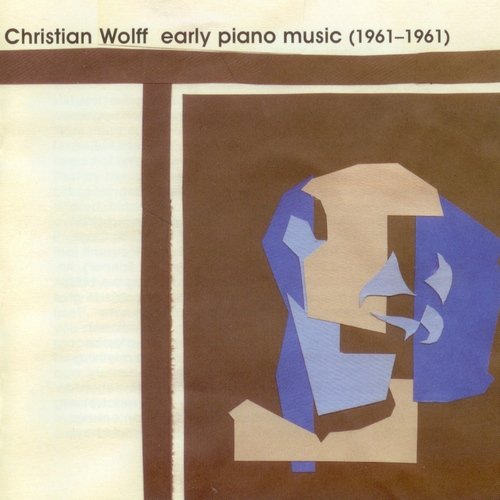
John Tilbury, Christian Wolff - Christian Wolff - Early Piano Music 1951-1961 (2002)
BAND/ARTIST: John Tilbury, Christian Wolff
- Title: Christian Wolff - Early Piano Music 1951-1961
- Year Of Release: 2002
- Label: Matchless Recordings
- Genre: Avant-garde, Modern Classical
- Quality: APE (image+.cue,log,scans)
- Total Time: 01:32:40
- Total Size: 259 Mb
- WebSite: Album Preview
Tracklist:
CD 1: Solo
1. For Prepared Piano 1951 I
2. For Prepared Piano 1951 II
3. For Prepared Piano 1951 III
4. For Prepared Piano 1951 IV
5. For Piano I 1952
6. For Piano II 1953
7. Suite I 1954 I
8. Suite I 1954 II
9. Suite I 1954 III
10. For Piano With Preparations 1957 I
11. For Piano With Preparations 1957 II
12. For Piano With Preparations 1957 III
13. For Pianist 1959
CD 2: For Two Pianists And A Percussionist
1. Duo For Pianists I 1957
2. Duo For Pianists II 1958
3. Duet I For Piano Four Hands 1960
4. Trio II For Piano Four Hands And Percussion 1961
Performers:
John Tilbury, Christian Wolff - pianos
Percussion – Eddie Prévost
CD 1: Solo
1. For Prepared Piano 1951 I
2. For Prepared Piano 1951 II
3. For Prepared Piano 1951 III
4. For Prepared Piano 1951 IV
5. For Piano I 1952
6. For Piano II 1953
7. Suite I 1954 I
8. Suite I 1954 II
9. Suite I 1954 III
10. For Piano With Preparations 1957 I
11. For Piano With Preparations 1957 II
12. For Piano With Preparations 1957 III
13. For Pianist 1959
CD 2: For Two Pianists And A Percussionist
1. Duo For Pianists I 1957
2. Duo For Pianists II 1958
3. Duet I For Piano Four Hands 1960
4. Trio II For Piano Four Hands And Percussion 1961
Performers:
John Tilbury, Christian Wolff - pianos
Percussion – Eddie Prévost
This outstanding two-CD survey of the piano music of Christian Wolff comes courtesy of the composer's longtime friend, pianist John Tilbury, with a little help from Matchless label boss (and fellow AMM mainstay) Eddie Prévost and the composer himself. Wolff's studies with John Cage began at the tender of age of 16, and "For Prepared Piano" (1951) is an affectionate nod toward the rhythmic procedures of his teacher, who sent his student off to the hotbed of avant-garde Europe that same year to meet Pierre Boulez. If the influence of the Frenchman's "Structures" is evident in the frozen pitches of Wolff's "For Piano I", the Artaudian violence of Boulez's early total serial work is replaced in Wolff's music by a frosty asceticism that makes "For Piano II" (1953) still a difficult listen today. In "Suite (1)" (1954), where the composer is working "with discrete preselected elements, juxtaposed and superimposed by means of intricate structural schemes not directly accessible to the listener" (to quote Michael Parsons' excellent and informative liner notes), listeners will have to come along prepared to think. From 1957 onward, Wolff's music began to incorporate more elements of indeterminacy -- its use of time brackets predates Cage's late number pieces by nearly three decades -- which makes the extended techniques of "For Pianist" (1959) and the duos and trio on the second disc slightly more accessible, but, to quote Tilbury: "With this music you learn the prime qualities needed in performing: discipline, devotion, and disinterestedness." That applies to listening, too.
Classical | FLAC / APE | CD-Rip
As a ISRA.CLOUD's PREMIUM member you will have the following benefits:
- Unlimited high speed downloads
- Download directly without waiting time
- Unlimited parallel downloads
- Support for download accelerators
- No advertising
- Resume broken downloads


